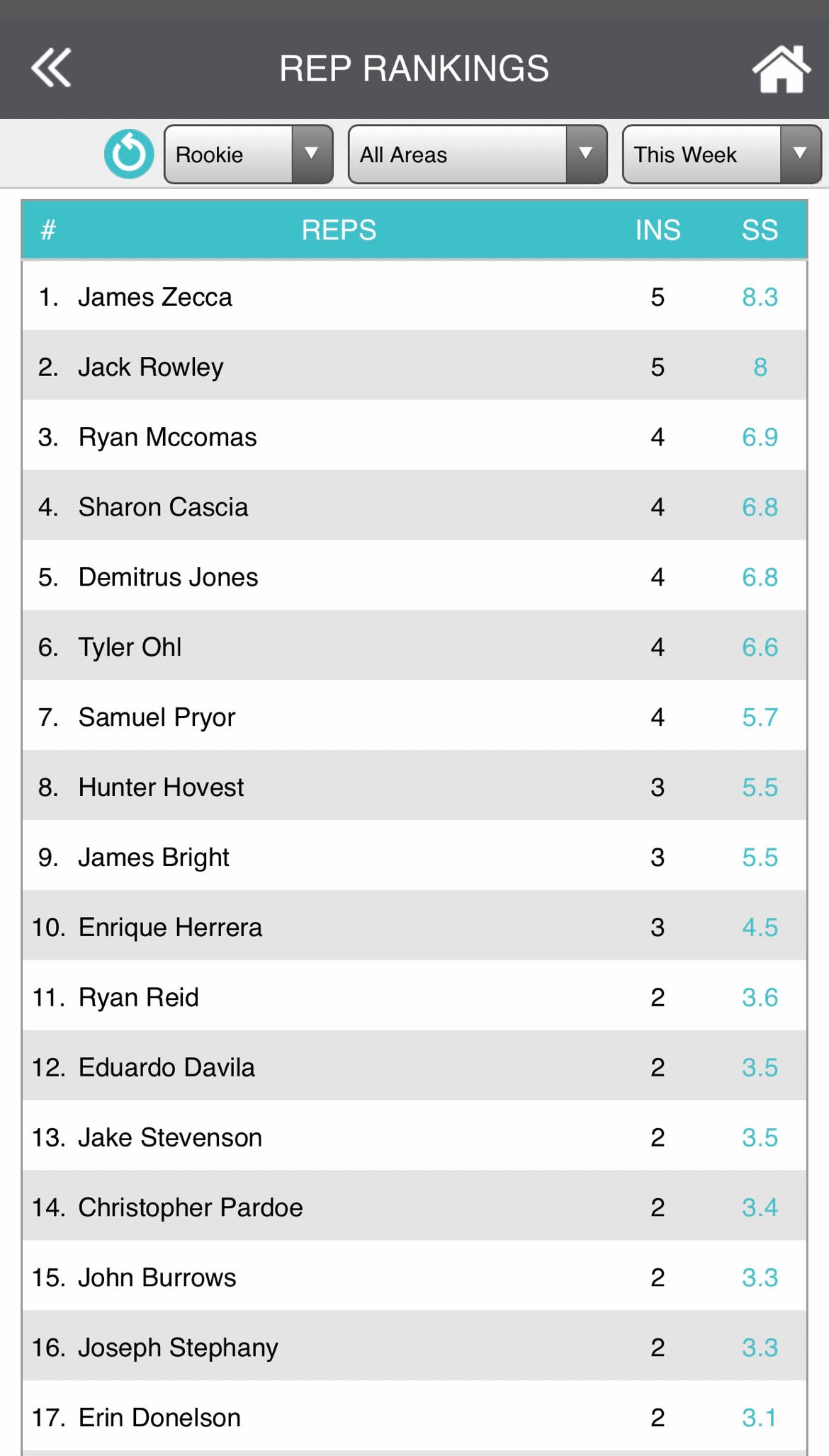"My first day is over.
It’s officially begun.
No more shadowing.
No one to hold my hand.
No more on-the-job training.
I’m in Austin, Texas. It’s nearly 100 degrees outside everyday. I’m living in a house with 27 people. Space is tight, and I have no idea what I’ve just gotten myself into.
If you remember from part 2, it’s the same drill every morning: Fight for bathroom occupancy, try to make breakfast, head to the living room in the AirBNB—or as the “managers” call it, the “office”. Settle in and listen to correlation, an hour-long meeting where someone steps up to inspire the team before the world humbles them. Afterwards, we’re divided into “car groups”. It's an intriguing concept for those unfamiliar with the industry, and worth explaining for a better grasp of door-knocking culture.
With 27 people on this team, 8 drivers take everyone to work in separate cars (27 reps / 4 reps per car = 8 cars). Despite being a 1099 employee—an independent contractor working on pure commission—management implies that driving to work is a “privilege.” You can't drive your own car to work without your manager's consent.
This “rule” exists for a few reasons:
Managers want you restricted to your assigned neighborhood during the day, which they've carefully chosen for you.
They want to control when you finish for the day, which typically means whenever your car group leader picks you up.
And perhaps the most obvious reason: some individuals can't handle the liberty of unsupervised work.
At a glance, this might seem absurd. Why not just avoid hiring those with questionable work ethics? But that's not how things operate here.
I would often times point out the problem with adhering to these rules being in place for someone who is an independent contractor.
Questioning these cultural "taboos" put me in a difficult spot within the office's political environment. Such inquiries were discouraged and met with evasive responses. The management’s approach to team questions was eerily similar to how they trained us to manage customer objections.
We were advised to pacify with phrases like “I totally understand” and then proceed to explain why our approach was correct, regardless of personal beliefs.
It was a flawed system, and it was especially challenging for someone straightforward and insatiably curious. Seeking knowledge often made the atmosphere tense.
Still, this environment was instructional. I learned to identify and counter such tactics when they were used on me, although the actual door knocking education given to you is minimal. Because of this
you have to go out and learn through trial & error. Most of the time, you witness one sale closure, and that's the extent of your practical knowledge. You might rehearse in the mornings and receive guidance from managers, but you're left clueless about delivery and timing. Hence, real-time practice—and internal office navigation—becomes crucial.
In my case, I had barely seen a sale because Adam had initiated the approach the day before I arrived, which happens to be a critical part of D2D sales. You can’t make a sale if you get the door slammed in your face every time you knock on it.
I didn't realize my disadvantage then. Nor did I fully understand my role and the company's expectations. The training lacked structure, and I wasn’t grasping the essentials.
It felt akin to asking an algebra student to solve a complex calculus problem after a single demonstration. I was unaware of my ignorance. For example, I didn’t even know what a “pitch” was.
I was still advised to knock and, if someone showed interest, to text a manager for help.
So, what was my strategy?
I just started knocking. Without a clear plan or direction, I attempted to bond with people, believing likability would translate into results.
I was wrong… I was so wrong.
For the following month, I knocked on over 2,400 doors.
Despite my friendly approach, not one sale materialized. I never experienced rejection like this before.
This continuous refusal was a first for me. With only $300 to my name and the looming pandemic, quitting seemed the logical route. However, I had a tuition fee to think about, and the pressure was mounting. If I wanted to quit and go home to figure out another way to make money it would only cost me $40 to get on a plane and head back to the Pittsburgh Airport.
What made the situation even worse was my position on the sales leaderboard—I was right at the bottom. It's one thing to face challenges, but it's another when your peers, some of whom are your age, seem to be breezing through.
For example, the number 1 rookie in the entire company—who is also a lifelong friend of mine today, was in our office. He started closing deals on his 3rd day… To my knowledge out of the 14 years that the company existed, he was the very first person to ever do that. He sold over 100 accounts his very first year on the job. I had to listen to how he was excelling every morning, and it burned me to my core that I wasn’t even competing.
Naturally, self-doubt began to creep in because of this dynamic.
In terms of skills that could be directly converted into money, I had none. However, I had two invaluable assets: an insatiable drive to succeed and an unyielding determination to keep pushing forward—unlike many of the initial 27 team members who quit. I would not allow myself to become a number, I was going to figure it out. Despite the fact that daily, it seemed someone had disappeared & quiet quit. It felt like I was a part of a reality TV show where participants faced elimination. You were always patiently waiting and wondering who was next, regardless of whether they quit or were fired because they couldn’t figure it out… because you knew it was coming.
But, I knew that the grass doesn’t always grow greener on the other side—the grass grows greener wherever you water it… so I decided to stay.
6 weeks passed without a sale. I hit financial rock bottom since pay depended solely on sales, which I had failed to make. Panic threatened, but a persistent internal voice urged me to persevere. I couldn’t help but think about all the sacrifices that were made to get me through high school and through my first two years of college. It was the one thing that kept me from quitting on my own.
Then, on a Saturday evening, the managers confronted me about my performance. Their message was clear—it might be time to leave. They didn’t care how hard I was trying, they cared about how much money I was making the office—and that’s a harsh reality I had to come to terms with. I learned it doesn’t matter how hard you work if you don’t produce results.
Overwhelmed, I negotiated for a one-week extension to secure a sale. They reluctantly agreed.
Fast forward to the Monday of my ultimatum week. I wake up, repeat my typical morning routine, and head to work.
I have until Saturday to get my act together.
In my head, I keep telling myself that I need to push harder. I don't have any other options. This HAS to happen.
I’m 100% in control of how much effort I put forth, so I double down on Monday. Instead of knocking on 100 doors a day, I start knocking on 200 & this would stay consistent throughout the week.
Monday ends, and it's a wash.
Several times I come close, and in my head, I remind myself: "It’s just a matter of time. Be patient." I'm not worried.
But then Tuesday comes—same thing. No closed deals.
Anxiety builds. Is this really happening to me?
Wednesday arrives. I wake up, go to work, and face the same disappointing results.
What am I doing wrong?
By Thursday, I'm out from dawn to dusk, knocking on doors.
Yet, I strike out again.
That evening, my frustration peaks. After knocking on my last door for the night, in a fit of rage, I smash my clipboard, breaking it into countless pieces while waiting to get picked up.
Friday comes around, and still—no deals.
At this point, I'm numb, wondering about my next move. I don't have the luxury of a plan B. Plan B has to be making plan A work.
Then Saturday dawns—this is literally my last shot.
The entire morning and early afternoon go by without success. Reality begins to sink in, but I remain resolute in the fact it’s not over until I get picked up by a manager at the end of the day.
I won't give up.
Around 6 PM, I spot a man taking out his trash a few houses down on one of the last 2 un-knocked streets in my area . When I see people outside, I immediately approach them. It gives me an edge, considering I often struggle to get past the initial approach at the door. By the time I reach his house, he's nearly inside. Trying not to seem desperate, I shout, "Hey man! Real quick!"
But it's too late. The door shuts.
I'm crushed, thinking I've missed a golden opportunity.
Dejected, angry, and feeling lost, I start walking away…
Suddenly, I hear a voice from behind, "Hey! Get over here!"
I spin around, point to myself, and ask, "Me?"
He waves and replies, "Yeah! You! Get over here!"
This might be my chance, my last-second opportunity.
I hurry over. As I approach, he invites me in, saying, "Come inside! Show me what you've got."
Being invited inside like this is almost unheard of in the door-to-door industry. People are typically scared to let a salesman who they don’t know in their house. Also the way that sales is transforming—consumers don’t like being cold called, they prefer to do their own research and then reach out at their own discretion.
In other words, I got lucky.
Nervously, I present a deal that I think makes sense. This is new territory for me. To get credit, I need to set up an appointment, but it only counts if the deal is sealed.
While waiting for my manager to arrive and finalize things, I try to engage the potential client in casual conversation, hoping to keep the momentum alive.
After what feels like an eternity, but is actually about 20 minutes, my manager arrives. As we proceed, I realize the client is interested not because of the product but because he genuinely likes me, a skill that I had developed over the last 6 weeks when I had no idea what I was doing.
And then, finally, the deal goes through.
I'm over the moon.
It feels like I've scored a game-winning shot at the buzzer.
Interestingly, I hadn’t done anything differently that day. I had merely given it my all.
In the back of my mind, though, a nagging question arose: "What will happen next week when I’m expected to do this again?”
My situation was eerily reminiscent of Michael Jordan's experience during the 1982 NCAA Championship game against Georgetown. Back then, critics doubted Jordan's shooting skills. Yet, with North Carolina trailing 62-61 and only 17 seconds left, Jordan drained a decisive jump shot, sealing the championship win for his team. From that moment on, no one ever doubted his ability to shoot a basketball ever again.
And it was true, prior to that shot, Michael Jordan was a very poor shooter, so what changed? What would make him become a 6x NBA champion, and arguably one of the best players to ever touch a basketball & also became known for his jump shot—the skill that was previously deemed limiting to his career.
He gained confidence after that shot.
Similarly, the weekend sale, which seemed like a fluke, boosted my confidence.
Just like MJ, after that pivotal sale, I hit a stride.
The following week, I clinched six sales—one every single day.
I went from having 0 sales over the course of 6 weeks to having 6 closed sales in one week.
It finally clicked. The crumbs of knowledge that I picked up here and there finally formed a full package, and I had my own unique skillset.
Questions of my suitability for the job changed to exclamations of admiration.
In the subsequent weeks, I climbed the leaderboard. I wasn't on the brink of getting fired. I managed to gather funds for school. My performance now earned praise in morning meetings. There were even times I ranked first nationally among 100 rookies of the company for the week. By summer's end, I was the 4th best rookie in my office and one of the top 10 rookies in the entire company, rivaling colleagues with years of more experience.
Nobody ever hinted again that this job might not be for me.
If you remember in Part 2 how I said, “Never stop searching for that "one win." It might just change your life. This was my win.
People often ask how I managed such a turnaround.
I experienced every emotion, and refused to quit.
While my technical skills did improve, the real game-changer was more profound. If I had to boil down my entire experience to one principle, it would be this:
You can't lose if you don't quit.
INS stands for “installed”, in other words this how many sales were made by that individual for that week. SS stands for “Smart Score”, which is a score that determined the quality of your sales.
This is the end of my Door Knocking Series
There are many stories I could go on to tell from my time in the D2D industry, but this one is by far the most important
This is only 1 chapter of my story, & I hope this has inspired those of you who have read it
As I turn the page, I hope you all will continue to join me for what’s to come as I start writing more about what it’s like creating a company, exploring legal technology & Breaking The 4th Wall
I’m honored & grateful that you’ve taken the time out of your day to read my work… If you’ve enjoyed this please like, subscribe & share





